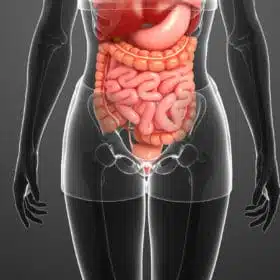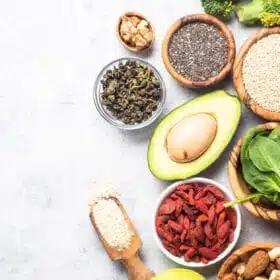If you want to lose weight, you are usually advised to go on a diet. While the advice on exactly which diet to follow can vary widely, what all the guides have in common is the advice to follow such a regimen. However: Is this tip at all meaningful? Or could it not rather be that the weight problems of many people in our society are precisely due to Diets and the attitude behind it?
Why diets can be problematic
Diets are not easy to follow through. Depending on the concept, perseverance may even be almost impossible if the tight program does not fit into the daily lives of working people or mothers. Frustration is inevitable when mistakes are made - and many people who are overweight then tend to seek comfort for their failure in food. In the worst case, this even leads to them weighing even more after such a diet than before. This not only affects the body, but sometimes also damages the soul - leading to depression, self-esteem problems and feelings of anxiety.
The body in starvation mode
In addition, it is assumed that the body falls into a "starvation mode" when calorie restriction is too strict. According to its Stone Age imprinting, it notices the restricted food intake and attributes it to famine. The result is binge eating, which occurs every time we eat. Our body forces us to strike properly, if then nevertheless once the food unexpected for it stands on the table. A sensible facility of nature, which stands in the way of our desire to lose weight.
The goal: a natural feeling of hunger
The fatal thing about a diet - or several of them - is that the externally imposed program interferes with the natural feeling of the body. In the worst case, this even leads to the fact that real hunger is no longer perceived. Many overweight people have lost touch with what hunger and appetite mean and how to distinguish between them. This also includes addictive eating behavior, which relates to foods with a high sugar or fat content, and which cannot be distinguished from healthy hunger. Therefore, it makes sense to look for a measure that can restore the feeling for one's own - real - hunger.
Would you like to get to know your own natural hunger (again) and be able to distinguish it from simple appetites and unhealthy cravings?
Then the following tips can be helpful for you:
1. keep a record of your hunger pangs
Get a notebook with a nice cover, or start a blog on the Internet. Several times a day, write down how your stomach area feels and if you are experiencing any cravings. Write down any feelings about food, trying to determine if it's hunger or if it's appetite that's coming up. Hunger is basically a more physical feeling, while appetite and addictive feelings are more psychological. Another indication of appetite instead of hunger is a strong desire for foods with a high sugar and/or fat content - for example, chocolate, pizza, cheese or meat fried in fat.
2. assess your hunger before eating
It's also important to determine how hungry you are right before you eat. Use a scale from 0-10. 0 means "no hunger", while "10" is the greatest hunger. Also distinguish real hunger from mere appetite and addictive behavior. You may want to introduce a number scale for these categories as well. Write down how you feel.
3. eat slowly and with pleasure
The slower you eat, the less you have to eat until you reach a feeling of satiety and satisfaction. Chew each bite carefully and enjoy your food. Also, pay attention to the smell and how your body reacts to the food. This applies to any food - even the unhealthy ones. Especially with the unhealthy ones, you should allow yourself to enjoy them and not shovel them in to appease any guilty conscience that may arise. This is no longer necessary!
4. eat enough vegetables and fruits
If you want to learn healthy eating habits, you should make sure to include enough fruits and vegetables in your diet. This is not about banning yourself from all other foods and eating only fruits. Rather, focus on including more healthy foods without restricting your other habits. You may then automatically find yourself wanting to eat fewer foods with a high calorie density. Fruits and vegetables fill your stomach, leaving less room for pizza and the like.
5. no guilty conscience when eating
If you just can't resist certain foods, then allow them. Don't see giving in to your cravings as a disadvantage, but stand by them. In this way, you avoid possible negative feelings about food that can lead to even more cravings. You can only develop healthy eating habits if you associate food with positive feelings.
6. research the cause of too much food
If you think that you tend to overeat due to personal problems, you should research the cause. For this purpose, there is counseling literature that can help you. If you feel that you are not getting anywhere with this problem on your own, you can also consult a therapist. The goal here is not to find (another) diet for you. Rather, the goal is to eliminate the real causes of overeating.




